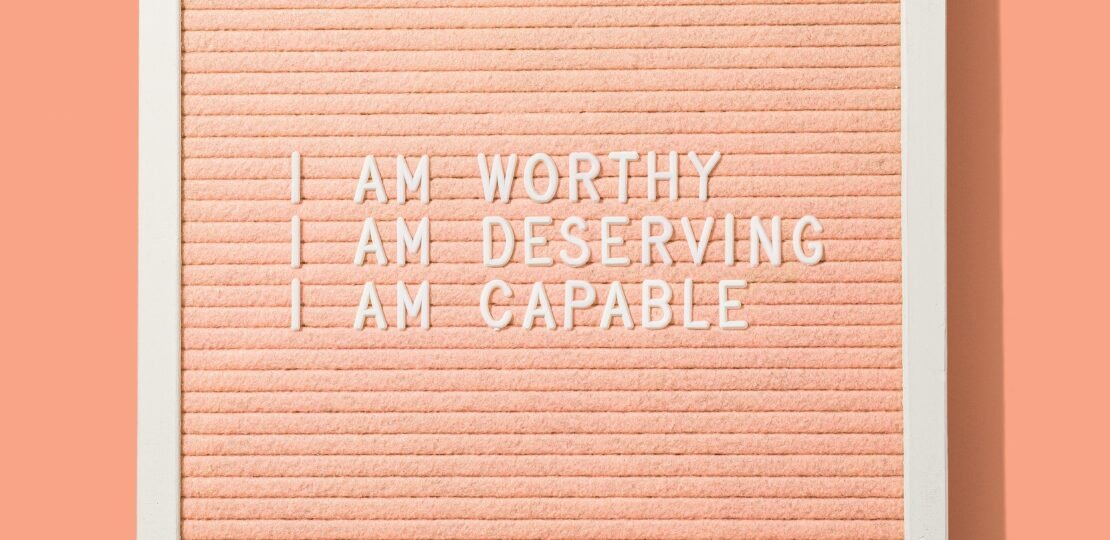5 Powerful Steps to Overcome Self-Doubt and Build Confidence
December 27, 2024 | by Ali

Table of Contents
How to Overcome Self-Doubt and Build Confidence: A Step-by-Step Guide to Becoming Your Own Biggest Fan (No Capes Required)
Let’s be honest for a second: if you’ve ever felt like you’re not good enough or that your dreams are just a little too big, you’re not alone. We’ve all had those moments where we question ourselves, our abilities, and whether we’re even on the right path. Heck, some days it might feel like your inner critic is louder than your actual voice.
The good news? This feeling is called self-doubt, and it’s something everyone experiences, even the most successful people. The real kicker is that self-doubt doesn’t have to define you. If you’re wondering how to overcome it and build the confidence to go after what you want, whether it’s acing your career, taking a leap into something new, or just getting through a tough day, I’ve got your back.
So, grab your favorite snack, sit back, and let’s talk about how you can kick self-doubt to the curb and unleash your inner superhero (cape optional).
Understanding Self-Doubt: The Sneaky Villain
Before we get all fired up with confidence tips and tricks, let’s first talk about what self-doubt actually is. Self-doubt isn’t just that “oops, I made a mistake” moment. It’s that quiet voice in the back of your mind that whispers things like:
“Are you sure you can do this?”
“Who do you think you are?”
“What if they don’t like you?”
Basically, it’s like having an annoying roommate who always questions your every move, even though they don’t really know what’s best for you. This voice can be sneaky, and it shows up in different forms, whether you’re about to give a presentation, ask for a raise, or even go to a social gathering. Guess what? It’s perfectly normal. Everyone experiences self-doubt at some point (yes, even the people who look like they have their lives together on Instagram).
But here’s the thing: that little voice isn’t the truth. It’s like a bad movie script that you’ve been accidentally writing, and it’s time to rewrite it. Self-doubt is usually based on fear…fear of failure, fear of judgment, or fear of the unknown. Spoiler alert: those fears are usually way more dramatic than they need to be. For a deeper look at what self-doubt really is and how it affects us, Psychology Today has a helpful overview.
Why Does Self-Doubt Even Happen?
If you’re anything like me, you’ve probably found yourself asking, “Why do I even feel like this? I’m smart, capable, and (mostly) know what I’m doing!” The answer is, well…. complicated. But it’s also totally normal. Self-doubt often stems from a few key factors:
Past Experiences: Maybe you tried something and failed before. Or you remember that time in school when you gave a presentation and forgot everything. Our brains like to remember things that went wrong, and sometimes those memories can haunt us more than we’d like.
Perfectionism: This is a big one. If you’ve set super high standards for yourself (and let’s face it, most of us have), anything that falls short of perfection can feel like a disaster. The fear of not being perfect leads to more self-doubt.
Social Comparison: Ah, the joy of scrolling through Instagram or Twitter and comparing your behind-the-scenes to someone else’s highlight reel. It’s easy to look at someone else’s life and think, “They’ve got it all figured out. Why don’t I?” But that’s the thing: you’re not seeing the full picture. Everyone has their struggles, even if they’re not broadcasting them online.
Lack of Positive Reinforcement: If you’ve been in situations where your achievements haven’t been recognized or you haven’t received the praise you deserve, then it’s easy to start questioning your worth. Validation is a huge part of building confidence, and when that’s missing, self-doubt can creep in.
Fear of Judgment or Rejection: This is the big one for a lot of people. The fear of being judged or rejected for who we are or what we do can hold us back from taking risks or trying new things. If you’re constantly worried about what others think, it’s easy to feel stuck in a cycle of self-doubt.

The Confidence Kickoff: It’s Time for a Change
Now that we’ve identified the sneaky villains behind self-doubt, let’s talk about how we can turn the tide and build lasting confidence. Here’s the truth: confidence isn’t something you’re born with. It’s something you build over time, just like muscle. So, if you’re starting from ground zero, don’t worry, you’ve got this. Let’s break down some actionable steps to help you overcome self-doubt and build the confidence you deserve.
1. Challenge Your Negative Thoughts
Remember that annoying inner critic? Yeah, it’s time to take them on. The next time you catch yourself thinking, “I’m not good enough” or “I can’t do this,” pause for a second. Ask yourself: Is this really true?
Here’s a fun exercise: when you have a negative thought, try turning it around. If your brain says, “I’m terrible at public speaking,” counter it with, “I’m still learning, and I can improve with practice.” This might feel awkward at first (like putting on a pair of shoes that are a little too tight), but over time, it becomes a habit. Soon enough, you’ll start to see that your thoughts don’t have to control you. Your inner critic can be relentless, but learning to stop negative self-talk is key. Harvard Business Review offers some evidence-based methods for quieting that critical voice.
2. Start Small: Baby Steps Are Key
Listen, you don’t have to go from doubting yourself to confidently strutting down the street like Beyoncé overnight. Confidence is built through small, consistent wins. So, start by setting small achievable goals for yourself. It could be as simple as speaking up in a meeting, introducing yourself to someone new, or trying a new hobby without worrying if you’re “good enough.”
Each time you accomplish something, no matter how small, take a moment to acknowledge it. Those little wins add up, and they become the building blocks for bigger achievements. Think of it like putting coins in a jar, each deposit, no matter how small, gets you closer to your goal.
3. Embrace Imperfection
If you’re waiting to feel 100% ready for something, you might be waiting forever. Perfectionism is one of the biggest traps that keeps us stuck in a loop of self-doubt. Here’s the reality: nobody is perfect. Not even the most confident, put-together people you see. They just know how to embrace imperfection and keep moving forward anyway.
The next time you mess up (and trust me, it’ll happen), don’t beat yourself up. Instead, laugh it off. Embrace the mistakes as part of the journey. After all, the world’s greatest inventors, creators, and leaders didn’t get where they are by being perfect. They got there by being persistent and learning from their mistakes.
4. Surround Yourself with Positive Influences
You know that saying, “You are the average of the five people you spend the most time with”? Well, it’s true. If you’re constantly surrounded by negative people who also doubt themselves or drag you down, it’s going to be a lot harder to build your confidence. If you surround yourself with people who uplift you, encourage you, and celebrate your victories, you’ll naturally start to feel better about yourself.
Now, this doesn’t mean you need to ditch all of your friends who are “downers,” but it does mean making an effort to find and connect with people who bring positivity into your life. Seek out those who inspire you, whether it’s a mentor, a close friend, or even people online who share your passions and goals.
5. Practice Self-Care and Self-Compassion
Building confidence isn’t just about changing your thoughts. It’s also about taking care of yourself physically, mentally, and emotionally. The better you feel about your overall well-being, the more confident you’ll be. Make time for things that recharge you, whether it’s going for a run, getting a massage, reading a good book, or simply taking a nap.
Also, don’t forget to be kind to yourself. Self-compassion is key. When you mess up (and again, you will), treat yourself with the same kindness that you’d offer a friend. Instead of thinking, “I’m such a failure,” try thinking, “That didn’t go as planned, but I can learn from it and do better next time.”
Self-compassion is essential for building confidence and resilience. For more on why being kind to yourself matters and how to practice it, check out this excellent resource from the Greater Good Science Center.
Building confidence also means practicing self-compassion and forgiving yourself when things don’t go as planned. If you want to dive deeper into this, check out my blog post 9 Essential Steps Forgive Yourself: The Power of Letting Go for practical tips on how to let go and be kinder to yourself.
The Bottom Line: You’ve Got This
Building confidence isn’t a one-size-fits-all process. It takes time, effort, and sometimes a little trial and error. The most important thing to remember is that confidence is not an innate trait that some people are born with while others are not. It’s something you can develop, just like any other skill.
So, next time self-doubt creeps in, remember that you’re not alone. We all experience it. While it might feel like it’s holding you back, it doesn’t have to. With the right mindset, a little self-compassion, and some small, consistent steps, you can overcome self-doubt and start building the kind of confidence that lets you take on the world.
You’ve got this…now go out there and show the world what you’re made of (and, please, wear that cape if it makes you feel awesome).
Sources:
Flett, G. L., Nepon, T., & Hewitt, P. L. (2016). Perfectionism, worry, and rumination in health and mental health: A review and a conceptual framework for a cognitive theory of perfectionism. Perfectionism, health, and well-being, 121-155.
Huynh, H. P., Thomas, J., Castellanos, I., Weatherford, D. R., & Lilley, M. K. (2024). Social Comparison, Belongingness, Self-Doubt, and Stress: The Case of Hispanic Students at Hispanic Majority Institutions. Hispanic Journal of Behavioral Sciences, 46(2), 99-121.
Wilding, C. (2015). How to Deal with Low Self-Esteem: A 5-step, CBT-based plan for overcoming negative thoughts and eliminating self-doubt. Sheldon Press.
RELATED POSTS
View all



